How Southwestern Health Resources uses quality data to transform care delivery
Shashi Vangala, Chief Data Analytics and Value Creation Officer at Southwestern Health Resources (SWHR), champions data quality with technology and transparency. Vangala has been at the intersection of healthcare and data analytics for 20 years.
“I truly believe in leveraging the power of data and analytics to impact healthcare and transform care delivery,” Vangala said. “Our motto is to transform healthcare through value-based care. We leverage data and analytics as one of our core assets and we fully believe in the potential of leveraging data and analytics capabilities,” Vangala explained.
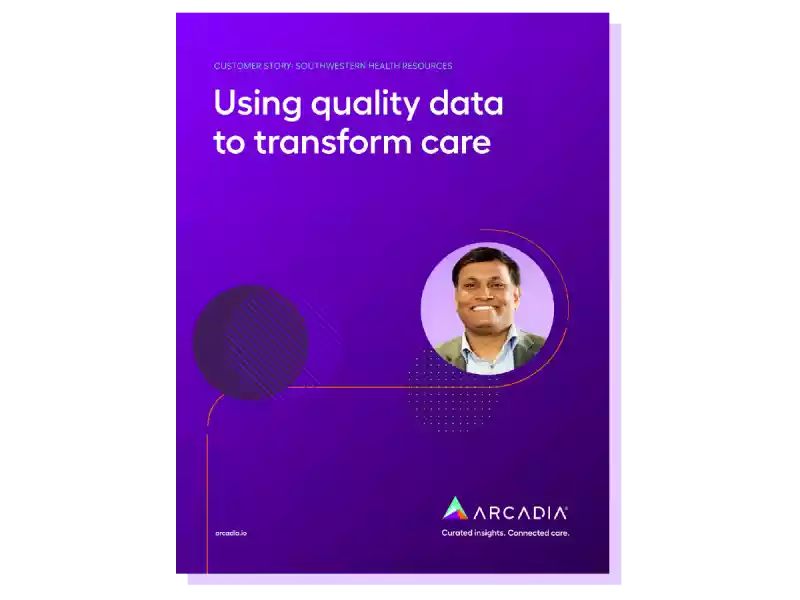
Download the Customer Story
Vangala and his team seek innovative ways of leveraging data and producing insights so that SWHR can deliver operational excellence, drive innovation, and grow.
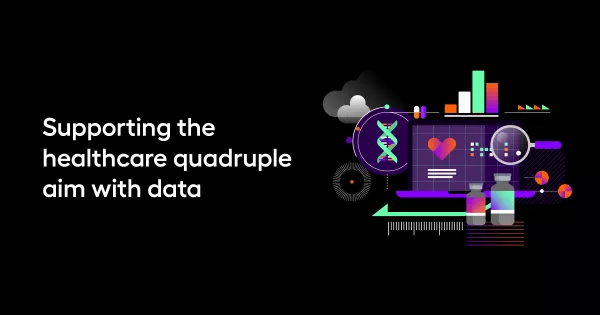
Supporting the healthcare quadruple aim with data
The quadruple aim of healthcare — enhancing patient experience, improving population health, reducing costs, and improving the work life of health care providers — provides many organizations direction to optimize health system performance. To hit all of those moving targets at once is extremely hard, which is why SWHR leverages technology, automation, and processes that keep the team focused on its overarching strategic elements.
“It's a balancing act, so some days, it is truly about ensuring data quality, supporting all of these various projects that are in support of these strategic areas of our company,” Vangala said. “Other days, it is doing strategic planning, thinking about our long-term objectives of our organization.”
One way SWHR uses data analytics is by developing a prime dashboard to harness the insights from the domains of its physician network primary care incentive model.
“The key domains that make up our incentive model would be total cost of care, quality, network efficiency, and risk adjustment, so we are providing insights on provider performance,” Vangala said. “It's personalized at the provider level. We're providing insights on how a provider is performing vis-a-vis the cohort that they're part of, the practice that they're part of.”
SWHR also uses master patient indexes (MPIs) to ensure accurate reporting and identify care gaps.
“MPI really is at the heart of truly ensuring that all of the data at a patient level is integrated with the patient at the center of all of this. If you don't get that right, we will be seeing lots of fragmentation of data,” Vangala explained.
Vangala says that fragmenting of data dilutes care gap or quality scores.
“We have taken on this really focused initiative of mining for all these opportunities that exist … as a platform, we're truly doing this level of intense validation to ensure providers are getting care gaps reported at a patient level and that they can trust those and close those care gaps,” he said.
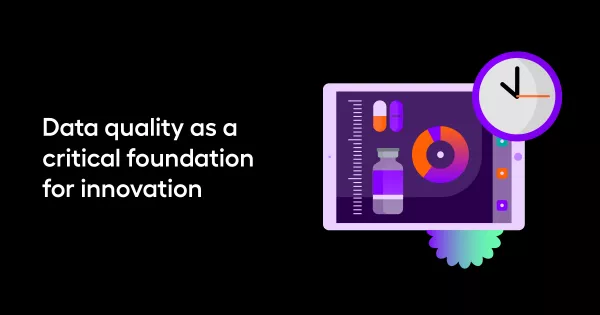
Data quality as a critical foundation for innovation
Data quality is the top priority for SWHR. Vangala sees it as a requirement for trust among the provider network. In addition, a foundation in great data quality enables exploration, innovation, and discovery, allowing the organization to take on more ambitious projects that support strategic growth.
SWHR relies on Arcadia for support in maintaining that foundation while working toward expanding the use of the platform into other areas, such as risk adjustment, leveraging predictive analytics, and building a single source of truth.
“I think it cannot be overstated — data is so integral to everything we do,” he said. “I say people are our number one asset, and then comes data. As an organization, from a value-based care standpoint, if we get those two things right, we will be doing most of the things right in value-based care.”
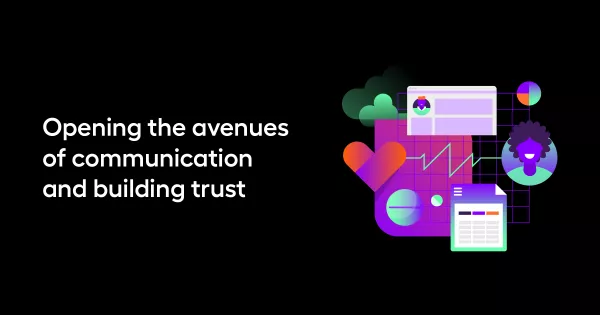
Opening the avenues of communication and building trust
SWHR is a data-centric company with many avenues for collaborating with physicians, operators, and executive leadership on network, practice, entities, and provider-level performance. Vangala points out that it is part of the ACO’s culture to leverage insights, and with that comes intense responsibility to get it right. Its advisory groups are where they share provider-level data, look at trends and adoption strategies, and remove barriers.
“We knew the risk of creating this hyper-transparency would bring a lot of focus to every provider’s data — a provider knows a lot about their patients, so if the data is not right, they're never going to look at that data again,” he said. “As an organization, we know the importance of trust, we know the importance of data quality, we know the importance of infusing these insights into their day-to-day practices. It’s important for us to make sure that we get the data right.”
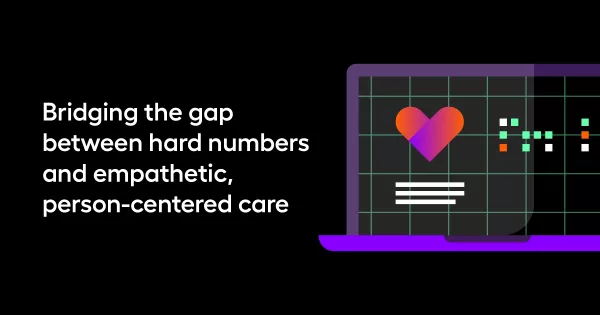
Bridging the gap between hard numbers and empathetic, person-centered care
At the end of the day, all of this data is used to make decisions about people’s health and lives, so providers must bridge the gap between hard numbers and personalized, empathetic care.
“Being able to harvest the insights from the products and the tools and the platforms, and being able to drive action, to make an impact — I think it really comes down to having actionable insights, engaging in storytelling, and really personalizing the impact at a provider level, or a patient level, or a care manager level. Make it highly contextual, relevant, and actionable,” Vangala said.
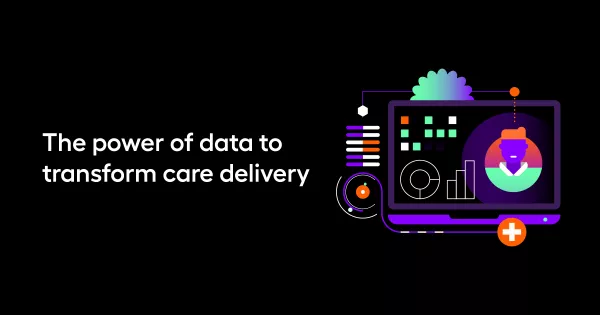
The power of data to transform care delivery
Quality data opens the doors to new ways of delivering care that improves patient outcomes and reduces costs. It paves the way for long term, sustainable growth for accountable care organizations navigating the complex world of value-based care. Watch more Customer Stories or request a demo to see how we can put your data to work, together.

